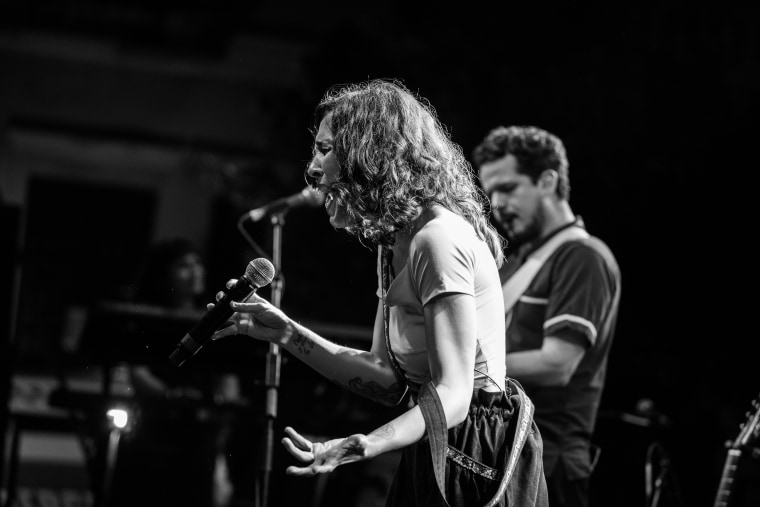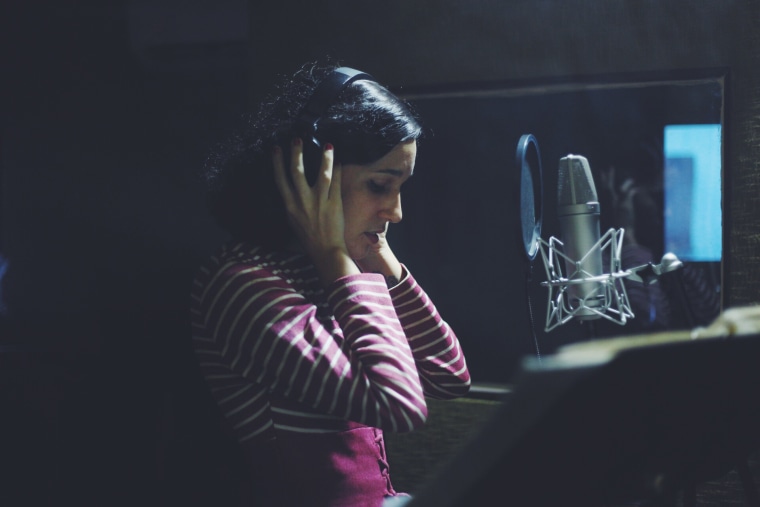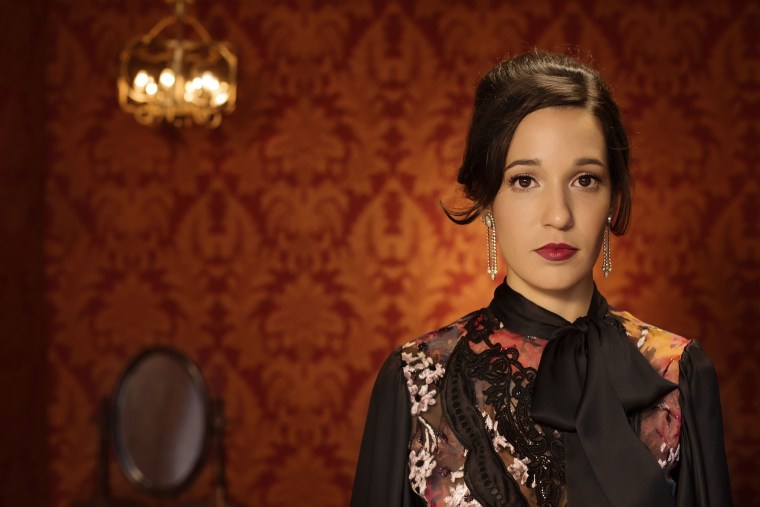Ileana Cabra accomplished a rare, music industry feat when her debut solo album iLevitable won the 2017 GRAMMY for Best Latin Rock, Urban or Alternative Album.
Breaking from Calle 13, her brothers’ superstar hip-hop band, she followed her passion for the vintage Latin sounds she grew up with in Puerto Rico. It was a counter-intuitive move. Who leaves the biggest audience imaginable to find their own voice? It proved to be a challenging journey of self-discovery for the little sister who bopped and sang her way into womanhood as “PG-13.” She emerged transformed, with a fierce femme persona, “iLe,” and an instant classic.
“I was relieved just to release the album. Everything that happened after that has been a huge surprise,” iLe gushes. “We feel very, very happy.”
The album was years in the making. It began in 2012 when iLe and the late, legendary Cheo Feliciano recorded Dolor, an old bolero written by her grandmother Flor Amelia de Gracia. iLe’s brothers continuously encouraged her to keep recording. “It wasn’t until 2014 when I started to let go and began to express myself through songs and composition,” she says. The recording became a celebration of familia as her brother Eduardo, sister Milena and father Joey Cabra contributed their talents.
iLevitable is a striking blend of timeless boleros, big band boogaloos, alternative stylings and more. Its masterful depth and breadth of artistry are powered by iLe’s voice, which is at once dynamic and wistful, capturing the emotional intensities of love, longing and angst brilliantly. Indeed, a voice found.
iLe recently spoke with NBC Latino about her music, feminine power and life in Puerto Rico.
What was your biggest challenge working on the album?
“The hardest part was to trust in myself; to just do it. It was very difficult. Not wanting to let people know anything about you but at the same time, opening up helps you to transcend. It’s like a metamorphosis. You feel very free [taking] a chance at learning about yourself and what you’re capable of doing. And it helps a lot, psychologically. Art helps me through life, through complications.”

You’re often described as an old soul, by the way you express yourself and touch others. How does the music come to you?
“I have my moments when I lose myself in writing. I like first to create an atmosphere and then write. But, I really have to want to do it – I don’t like to work under pressure (chuckles.) I like to empathize with situations [to] channel emotions. I try to be as completely connected as I can in the moment to the song.
“When you’re composing, you close [shut down] everything around you. When you’re performing, it’s the contrary; you have to explode everything [out] at the moment. You don’t have time to think about it. The energy of the audience has a lot to do with it. You create a moment and people are gonna remember THAT moment. It’s very special; very profound!”
What are some of your favorite songs on this album and why?
“Obviously, my grandmother’s songs. It’s crazy that for the first time they’re being published; like songs from the 50s and 60s. They’re moments from her life that transport me and my family to her time and her life. She died very unexpectedly, and it feels like she’s very present. Listening to people sing her songs during a show is mind blowing. It’s very, how do you say… ¡gratificante! (gratifying.)
“Of my sister’s songs, Triángulo. It’s a very profound song. And for my songs, I have to say Rescartarme. It’s really powerful for me in a very feminine way. We women allow too much in our relationships and situations. We don’t know how to [release] our pain and our complications; it can sometimes trap you. And I wrote it because I was kind of angry [that] it’s so normal in society that women go through this pain and work it out on their own without any help, and sometimes society says maybe you’re crazy because you’re so sad – but the inside is not crazy. I try to get people, especially women, to listen to it, to help transcend the pain and value themselves more.”
iLevitable’s writers are mostly women. Talk about the rise of feminine power in music as a catalyst for change.
“This album is about looking into ourselves a little more for the purpose of trying to understand each other. I still can’t believe that in 2017 we’re going through this nonsense and irrationality: this treatment of women and [other] people just because they’re different. We’re all complicated. Nobody’s perfect at all and that’s the beauty of being alive. You can be political in many ways – and I am, in my songs, as well as my sister’s and my grandmother’s. We think being political is just being human. This album expresses the feminine side in a very, very human way.”
Let’s talk about Puerto Rico and life on the island these days.
“We as Puerto Ricans don’t know exactly why we’re in debt and we’re ordering an audit because suddenly the blame is all on us. We’ve been a colony for very long years. Clearly, we’ve been submissive to how we’re being managed as a country. It’s terrible we tend to think we’re not capable. I hope we learn to appreciate ourselves more through independence and not letting anyone put their hands on our things and our lands and our own country.”

Have the arts been impacted? You proudly recorded iLevitable in Puerto Rico with 75 musicians.
“It’s ridiculous. People here don’t support artists so much unless maybe they [leave.] We have a lot of musical culture, but not many places to see traditional music. We try at least on our own to get the culture flowing.”
How do you feel about Obama pardoning Puerto Rican activist Oscar López Rivera?
“Oh, it was beautiful! Oscar united Puerto Rico in a very weird way. People of different ideologies [came] together. It was amazing! My eyes are watering right now! We’re a very small island; everyone here feels like family so everyone is happy.”
Is it too early to tell how your GRAMMY will help your career, or are you already seeing signs?
“I think it might, but I’m not relying on that. The industry is very unpredictable. I’ve received very good feedback from all kinds of people from different generations. And that makes me feel good. Maybe it takes them to some different places of their own lives. I think that’s my main purpose; just to transmit something through music.”

